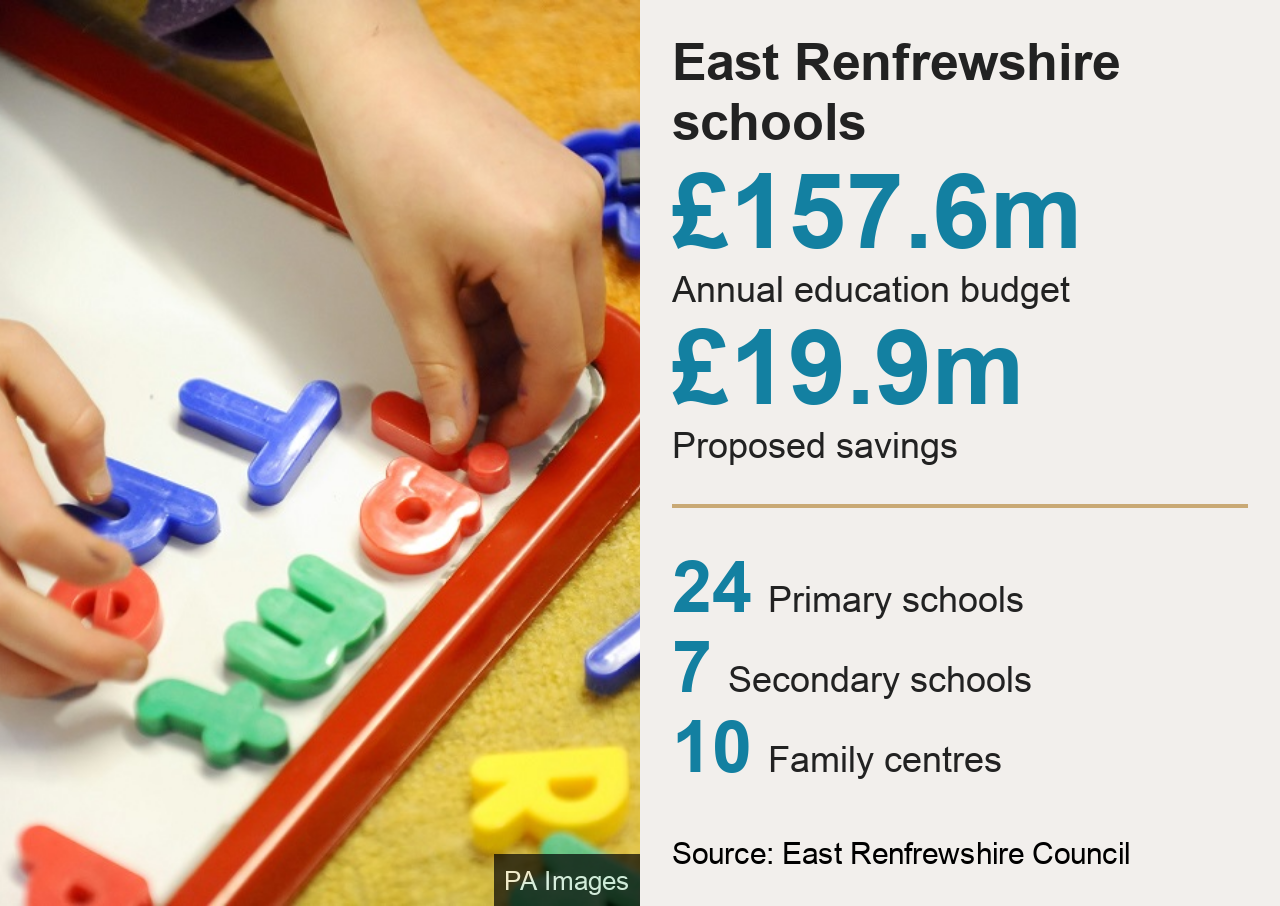Council with Scotland's top schools debates 'very serious' education cuts
- Published

The school week for primary pupils in East Renfrewshire could be reduced from 25 hours to 22.5 hours
East Renfrewshire Council which has some of the top performing schools for exam results in Scotland is considering "very serious" education cuts.
The authority has announced it could face a funding shortfall of more than £30m in the next three years.
It said that without an increase in funding it would "not be able to deliver the same levels of service we are currently providing".
One idea is to reduce the school week for pupils at its 24 primaries.
The council has published a seven-page document, external of possible savings between 2023-26 which could result in 550 job loses.
It said that not all would be enacted, "but it's likely many of them will". The document went on to say that council chiefs had found the cost-cutting task "incredibly difficult", however, balancing the budget was important.
Pupil attainment
Members of the public, staff and unions are now being consulted ahead of the council's 2023-24 budget being set on 1 March.
Schools in East Renfrewshire consistently perform well in exams with 77% of S4 pupils attaining five or more National 5s and 47% of S5 pupils achieving five or more Highers.
Of its £339m budget, just over a third (116.9m) is spent on its primary and secondary schools.
Suggested savings totally about £20m include;
reducing funds for staff to work with the lowest-performing 20% of pupils
removing funding for reduced maths and English class sizes in secondary schools
cut the number of pupil support teachers
cut to classroom supplies budget
reducing primary school week from 25 hours to 22.5 hours
The council said some of the options for cuts would have a "very serious negative impact on the quality of learning and teaching, attainment, achievement, wellbeing, pupil support, equity and would increase the pupil to teacher ratio".
It added: "It will also severely impact career opportunities for teachers, particularly newly-qualified teachers. The reduction in early learning and childcare and school-based support staff would impact on both the workload of school management and other departmental and council services."

At this time of the year, Scotland's 32 local authorities start to discuss how they will balance the books for the forthcoming financial year.
East Renfrewshire says that like all other councils it is "facing the same challenges as everyone else in terms of inflation and rising energy costs".
It also highlights that the money it receives from the government is remaining at the "same cash level".
Besides education savings, the authority is suggesting possible cuts to other services including reducing the roads budget, increasing charges to garden waste collection, introducing parking charges and establishing a residential parking permit scheme.


Some councils have operated a 4.5 day school week for several years.
Scottish Borders made the change nearly 10 years ago while Edinburgh has done this for even longer.
Pupils spend the same number of hours with teachers each week but the days are configured differently - four longer days to allow for a shorter day on Friday.
There are economic arguments for making the change - for instance, over the cost of heating school buildings. However, the overall length of the working week for teachers is not affected.
The educational arguments are more complex.
Some primary school teachers, for instance, would say that they plan their week differently: Mondays to Thursdays might be relatively intense while Friday mornings might be more relaxed with more fun activities to help pupils wind down for the weekend.
Change can be difficult though.
In particular, working parents may need to consider the implications for childcare if schools are closed on Friday afternoons.